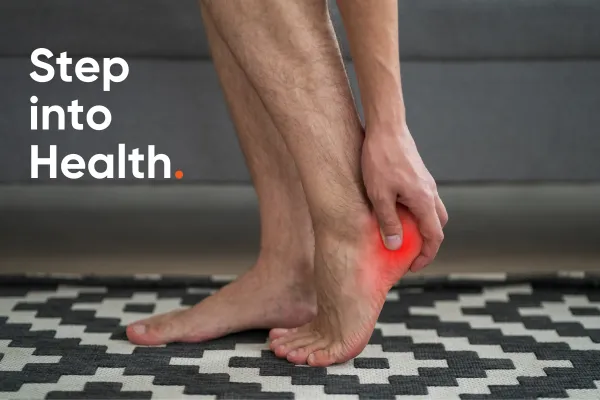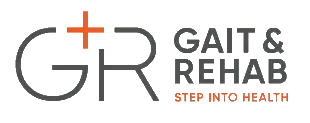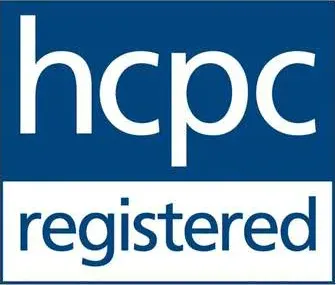
Why Does My Heel Hurt? Expert Guide to Achilles Tendinopathy & Plantar Fasciitis Treatment in Knowle
Why Does My Heel Hurt? Expert Guide to Achilles Tendinopathy & Plantar Fasciitis Treatment in Knowle
"I thought it would go away on its own. I switched shoes, cut back on walking, even started stretching a bit. But it just kept coming back. Every morning I'd take those first few steps and wince—it felt like someone had jabbed a knife into my heel."
That's how one of our patients at Gait and Rehab described their heel pain, and it's a story we hear all the time at our Knowle podiatry clinic.
Heel pain is one of the most common reasons people visit our practice, and two of the biggest culprits are Achilles tendinopathy and plantar fasciitis. While these conditions sound technical, we'll break them down clearly and show you how our advanced podiatry treatments help people recover completely.
What's Causing Your Heel Pain?
If you've been experiencing sharp, dull, or aching foot pain around your heel—especially when you first get up in the morning or after periods of rest—it's likely to be one of the following conditions:
1. Plantar Fasciitis: The Morning Pain Culprit
Plantar fasciitis involves irritation or degeneration of the plantar fascia, a thick band of connective tissue running along your foot's bottom from heel to toes. This tissue acts like a spring, helping you walk and absorb impact during daily activities.
With plantar fasciitis, this tissue becomes overloaded and develops micro-tears. Common symptoms include:
Stabbing or burning heel pain
Worse pain in the morning or after rest
Pain that eases with movement but returns later
Tenderness along the foot's arch
2. Achilles Tendinopathy: The Active Person's Challenge
Achilles tendinopathy affects the large tendon connecting your calf muscles to your heel bone. This crucial tendon helps you push off when walking, running, or climbing stairs.
With overuse or improper loading, the Achilles tendon becomes thickened and inflamed—or worse, starts degenerating. Key symptoms include:
Pain or stiffness at the back of the heel
Swelling or visible thickening of the tendon
Pain that flares during or after exercise
Morning stiffness that improves with gentle movement
These heel pain conditions commonly affect people who've recently increased activity levels, started new exercise programmes, changed footwear, or returned to sport after breaks. However, they can also occur in less active individuals, particularly when underlying biomechanical issues exist, such as:
Tight calf muscles
Poor foot posture
Reduced ankle mobility
Improper gait patterns
Why Isn't Your Heel Pain Getting Better?
Chronic heel pain persists because the affected tissue remains under constant strain. Whether standing at work, climbing stairs, or simply walking to shops, we continuously use these structures throughout daily life.
When problems become chronic, your body stops attempting inflammatory healing and instead settles into a degenerative cycle. This is where targeted podiatry treatment becomes essential for recovery.
At Gait and Rehab in Knowle, we don't offer generic solutions. Our comprehensive biomechanical assessments examine your gait, muscle strength, joint mobility, and foot posture to pinpoint your pain's true cause. Then, we create tailored treatment plans to get you back on your feet.
Advanced Heel Pain Treatment at Gait and Rehab
Our heel pain treatment approach is always based on your condition's stage—whether reactive, degenerative, or mixed. Here's our comprehensive treatment methodology:
1. Load Management and Strengthening Programs
You can't stretch your way out of these problems. Instead, we use specific strengthening programmes to gradually reintroduce load to tissues, helping them become more resilient.
For Achilles tendinopathy, we might prescribe eccentric heel drops. For plantar fasciitis, treatment might include towel curls or calf raises with toe extension. Every rehabilitation programme is tailored to your body's specific needs.
2. Shockwave Therapy: Advanced Healing Technology
Shockwave therapy represents one of our most effective treatments for chronic cases. Despite sounding intense, patients often describe it as a deep tapping or pulsing sensation.
What is Shockwave Therapy?
Shockwave therapy uses acoustic pressure waves to stimulate your body's natural healing processes by:
Increasing blood flow to affected areas
Disrupting chronic inflammation
Stimulating tissue regeneration
Breaking down scar tissue or calcifications
This advanced treatment is ideal for Achilles tendinopathy and plantar fasciitis that have stopped healing properly. Most patients need three to six sessions, spaced weekly, while continuing rehabilitation exercises.
Shockwave therapy is supported by NICE (National Institute for Health and Care Excellence) and widely used in sports medicine, with strong research backing its effectiveness.
3. Manual Therapy and Mobilisation
Our hands-on treatments help reduce calf muscle tightness, release plantar fascia tension, and improve joint mobility—especially crucial when ankle stiffness contributes to heel pain.
4. Gait Analysis and Custom Orthotics
When walking patterns or foot posture contribute to problems, we use Footscan gait analysis and custom orthotics to redistribute pressure and support better movement mechanics.
Patient Success Story: Sarah's Journey to Recovery
One patient, Sarah, visited us after nearly a year of debilitating heel pain. She'd tried foam rollers, calf stretches, gel heel pads—everything she could find online. She was ready to abandon running altogether.
Our comprehensive gait assessment revealed her foot strike was placing excess strain on the fascia. Her calf muscles were tight, and ankle range was severely limited. We prescribed a targeted loading programme, fitted custom orthotics, and began shockwave therapy.
Results:
Six weeks: Walking pain-free, slowly returning to running
Twelve weeks: Back to 5K runs with no morning pain and renewed confidence
When to Seek Professional Heel Pain Treatment
Heel pain can be incredibly frustrating—it's often slow to heal, worsened by everyday activities, and easy to ignore until it stops you completely.
Don't wait for heel pain to resolve on its own. Seek professional treatment if you experience:
Morning heel pain lasting more than a few weeks
Pain that worsens with activity
Swelling or visible changes to your heel or Achilles tendon
Pain affecting your daily activities or exercise routine
Expert Heel Pain Treatment in Knowle
At Gait and Rehab, we combine clinical expertise, advanced technology, and whole-person approaches to help you recover—whether you're an athlete, a parent constantly on your feet, or someone who simply wants to walk without wincing.
Our Knowle podiatry clinic offers:
Comprehensive biomechanical assessments
Advanced shockwave therapy
Custom 3D-printed orthotics
Specialized rehabilitation programmes
Gait analysis using cutting-edge technology
Ready to overcome your heel pain? Book an appointment with our expert team at Gait and Rehab and let's get you back to moving well and feeling confident again.




